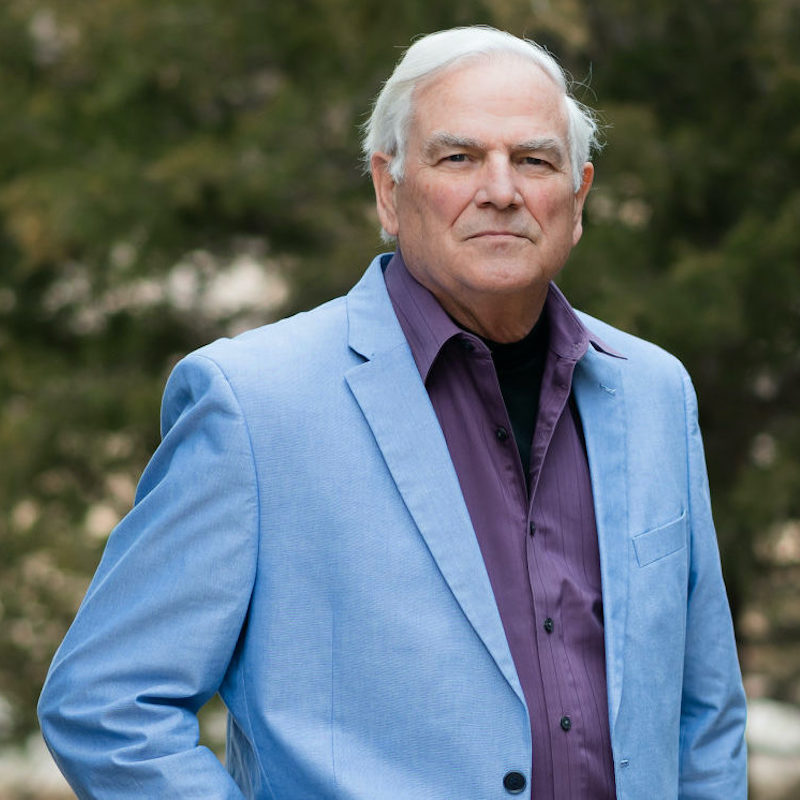Many concoctions and treatments have have been perpetrated on those that suffer from tinnitus. Some are simply “hit and miss” preparations, some homeopathically “proven“, and others that actually have research to support claimed benefits. This week’s Hearing International involves a look at some of these treatments and specific ingredients.
Audiologists consider traditional treatments such as Tinnitus Retraining Therapy, Tinnitus Masking and emerging treatments like Bimodal Stimulation as well as possible disease processes while homeopathic medicine defines treatments for tinnitus. Last week Hearing International presented some of these homeopathic tinnitus definitions of different types of tinnitus for which there are specific homeopathic medical remedies.
Most tinnitus treatment programs, including homeopathic remedies suggest counseling, diet modifications and a review of the use of over-the-counter and prescription medications, as these are both known to cause and/or exacerbate tinnitus.
Types of tinnitus listed by the homeopathic medicine sites seem to oversimplify the symptom and categorize it according to various areas of the ear that relate to possible causes and suggest a remedy according to it origin.
Homeopathic Tinnitus Remedies Based on Origin
1. Tinnitus associated with cochlear hair cells.
- Home remedy: Take 300 mg. a day of Coenzyme Q10 (CO Q 10) a powerful antioxidant that is crucial in the effectiveness of the immune system and the circulation to the ears.
2. Tinnitus associated with loud noise and other sensori-neural hearing loss. (could be hair cell related as well)
- Home remedy: Bayberry bark, burdock root, goldenseal, hawthorn leaf and flower and myrrh gum to purify the blood and counter act infection.
3. Tinnitus associated with hearing loss and noise exposure. (could be hair cell related as well)
- Home remedy: ginkgo biloba helps to reduce dizziness and improve hearing loss related to reduce blood flow to the ears.
4. Tinnitus associated with temporal-mandibular joint disorders.
- Home Remedy: Eat fresh pineapple frequently to reduce inflammation.
5. Tinnitus associated with the stiffening of middle ear joints.
- Home Remedy: Include in your diet plenty of garlic, kelp and sea vegetable
6. Tinnitus associated with a tymanic membrane perforation or rupture.
- Home remedy: Mix 1 teaspoon of salt and 1 teaspoon of glycerin in 1 pint of warm water. Use a nasal spray bottle to spray each nostril with the solution until it begins to drain into the back of the throat. Spray the throat with the mixture as well. Do this three times a day.
Do Any of These Tinnitus Treatments Make Sense?
In our own profession, Dr. Kathleen Campbell (2009) of Southern Illinois School of Medicine predicts that in the next decade—possibly sooner—new pharmacologic therapies will be developed that will allow audiologists to work with physicians and patients in selecting pharmacologic agents that can be used to prevent or ameliorate a variety of types of hearing loss and/or possibly tinnitus.
Antioxidants actually have some rather good science behind their use. Although most of the homeopathic treatments listed above may seem a bit strange, bizarre and of questionable benefit for tinnitus to audiologists and physicians, the use of antioxidants have shown some promise.
Sevastano et al (2007) demonstrated that antioxidants can be beneficial in the reduction of tinnitus intensity. Here’s how as they work as described by Mandal (2013):
All living organisms use oxygen to metabolize and use the dietary nutrients in order to produce energy for survival. Oxygen thus is a vital component for living. Oxygen meditates chemical reactions that metabolize fats, proteins, and carbohydrates to produce energy. While oxygen is one of the most essential components for living, it is also a double edged sword. Oxygen is a highly reactive atom that is capable of becoming part of potentially damaging molecules commonly called “free radicals.” These free radicals are capable of attacking the healthy cells of the body. This may lead to damage, disease and severe disorders.
Cell damage caused by free radicals appears to be a major contributor to aging and diseases such as cancer, heart disease, decline in brain function, decline in immune system etc. Overall, free radicals have been implicated in the pathogenesis of at least 50 diseases. Since free radicals contain an unpaired electron they are unstable and reach out and capture electrons from other substances in order to neutralize themselves. This initially stabilizes the free radical but generates another in the process. Soon a chain reaction begins and thousands of free radical reactions can occur within a few seconds on the primary reaction.
Normally free radical formation is controlled naturally by various beneficial compounds known as antioxidants. When there is deficiency of these antioxidants damage due to free radicals can become cumulative and debilitating. Antioxidants are capable of stabilizing, or deactivating, free radicals before they attack cells.
Foods with High Antioxidants
Certain foods naturally have antioxidants that contribute to hearing health. Some major sources of antioxidants include red wine, dark chocolate, brazil nuts, apple juice, carrots, blueberries and green tea. Although there are other good foods that are strong in antioxidants, these are some that can be ingested regularly and provide some needed deactivation of these free radicals.

Some of the tinnitus homeopathic remedies are rich in these antioxidants, but it is often difficult to tell from the packaging how much is antioxidant and how much is plain placebo. Rather than obtaining these “prepared” treatments, where there is often not much information about what is inside, it makes sense to consider finding either natural antioxidants in foods, or a supplement that contains them.
Then you know what you are taking and you can link that to the scientific evidence indicating possible to the benefits reduction or elimination of the tinnitus.
Again, Campbell presents that the development of agents to prevent NIHL is progressing rapidly. Another promising treatment is the use of D-methionine. These agents are being developed for clinical trials with relatively healthy populations with no concern for interfering with the efficacy of a drug treatment. Consequently, these agents may be less expensive and quicker to bring to market; many are found in the diet in small amounts and are being studied in concentrated dosages.
D-methionine (D-met), a compound under development in Dr. Campbell’s lab, is found in fermented proteins such as cheese and yogurt. Because it has been studied as a part of normal nutrition in humans and other species, much is known about its safety (Campbell & Rybak, 2007).
“In our animal studies, we have found that D-met can prevent permanent NIHL when it is given before and after noise exposures for the noise exposures we have used to date” We can start the administration of D-met up to five hours after the cessation of a six-hour noise exposure and still obtain significant protection from a permanent hearing threshold shift and outer hair cell loss. Some studies also report protection from temporary threshold shift, but others do not.” (Campbell et al., 2007).
Conclusion – Do Any Homeopathic Treatments Help Tinnitus?
Over the past five weeks, if you have followed the discussion, its been a long journey through the history of homeopathic medicine, how the remedies are made, their administration and finally their use in tinnitus treatments. At the beginning of this quest, I was interested in looking at the benefits of these commercial preparations to our tinnitus patients in the clinic.
I know that many audiologists, like me, in the US and likely many more countries around the world, are not very familiar with homepathic remedies. Like colleagues worldwide, I have had many patients try these preparations with virtually no positive results, but if there were any research suggesting positive empirical evidence of benefit, then these remedies could be used as part of a tinnitus treatment regiment.
There is significant empirical research going on in this area and there is promise that substances may offer treatment for some types of sensorineural hearing loss, tinnitus, and may even prevent problems like noise induced hearing loss in the future. As this point, however, it is a bit premature to be taking pills with the belief that it will cure one’s tinnitus.
Based upon my research over these past five weeks, I have concluded that the only homeopathic remedy that has any REAL merit for tinnitus and other auditory symptoms is the use of antioxidants. If patients are experiencing tinnitus, I will recommend that they consider the use of antioxidants
While the jury is still out, evidence suggests that when these antioxidants are received from natural foods and beverages, there are better results than when obtained from supplements. If an antioxidant supplement is used it should come from a reputable, known source to ensure that the substance is of high quality.
 For me? I choose to get my antioxidants from red wine and dark chocolate – Salut!
For me? I choose to get my antioxidants from red wine and dark chocolate – Salut!
 Robert M. Traynor, Ed.D., is a hearing industry consultant, trainer, professor, conference speaker, practice manager and author. He has decades of experience teaching courses and training clinicians within the field of audiology with specific emphasis in hearing and tinnitus rehabilitation. He serves as Adjunct Faculty in Audiology at the University of Florida, University of Northern Colorado, University of Colorado and The University of Arkansas for Medical Sciences.
Robert M. Traynor, Ed.D., is a hearing industry consultant, trainer, professor, conference speaker, practice manager and author. He has decades of experience teaching courses and training clinicians within the field of audiology with specific emphasis in hearing and tinnitus rehabilitation. He serves as Adjunct Faculty in Audiology at the University of Florida, University of Northern Colorado, University of Colorado and The University of Arkansas for Medical Sciences.
**this piece has been updated for clarity. It originally published on February 13, 2013








Bob, as someone who has been involved in the clinic and research realm, it definitely seems plausible that antioxidants would be the most effective against hearing loss/tinnitus, if taken immediately preceding or immediately following an intense noise exposure (as some animal model studies have shown with vitamin C for example). A good diet and exercise can only be a net positive hearing and tinnitus, in terms of getting good circulation to the cochlear vasculature.
I don’t disagree with you, however, I personally remain a skeptic of taking antioxidants well after the hearing damage and tinnitus has started and I suspect that most of the “benefit” percieved is probably placebo in nature. As we know, the power of suggestion is incredibly influential (so even suggesting these “pills” may help could have a major impact on perceived benefit) and retraining our brain/thought process is a key component in nearly all accepted tinnitus therapy programs. Regardless, as I tell any of my patients, taking vitamins usually isn’t going to be such a bad thing, so if it helps–that’s great.
Agreed….The power of placebo is a big one. Kathleen Campbell and her team and others are really investigating these issues and others. This is ongoing research that will have clinical implications for the future.